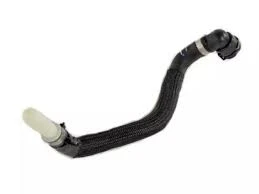auto ac lines
نويابىر . 21, 2024 21:46 Back to list
auto ac lines
Understanding Auto AC Lines Their Importance and Functionality
As we drive through the scorching summer heat or navigate a muggy day in spring, one component of our vehicles plays a crucial role in maintaining comfort the automotive air conditioning system. At the heart of this system are the auto AC lines, which are responsible for transporting refrigerant to cool the air that flows into your car's cabin. Understanding the significance, types, and maintenance of these AC lines can provide valuable insights into keeping your vehicle's air conditioning system in optimal condition.
What are Auto AC Lines?
Auto AC lines are essentially tubes that transport refrigerant throughout the air conditioning system. There are two primary types of AC lines high-pressure lines and low-pressure lines. The high-pressure lines carry refrigerant that has been compressed by the compressor, moving it towards the condenser. Conversely, the low-pressure lines carry refrigerant from the evaporator back to the compressor.
The compressor pressurizes the refrigerant, which then moves through the high-pressure line to the condenser, where it dissipates heat. Once cooled, it returns through the low-pressure line to the evaporator, where it absorbs heat from inside the vehicle, allowing the cabin to cool down.
Importance of AC Lines
AC lines are a critical component of a functioning air conditioning system. Their importance is twofold They facilitate the efficient movement of the refrigerant and help maintain the pressure necessary for the entire system to operate effectively. If the AC lines are damaged, blocked, or leaking, the entire air conditioning system may fail, resulting in warmer temperatures inside the cabin and increased strain on the engine.
Moreover, the quality of the AC lines affects the overall efficiency of the air conditioning system. Well-maintained lines ensure that refrigerant is transported quickly and efficiently, thereby improving the cooling performance of the system. Conversely, worn-out or clogged lines can lead to insufficient cooling and increased energy consumption, affecting both comfort and fuel efficiency.
Signs of Problems with AC Lines
Recognizing the signs of problems with auto AC lines is key to preventing further damage to the air conditioning system. Some common indicators include
1. Refrigerant Leaks If you notice any colored liquid or oily stains around the AC lines, this could be a sign of refrigerant leakage. Low refrigerant levels can lead to insufficient cooling.
auto ac lines

2. Hissing or Bubbling Noises Unusual sounds can often indicate a problem. A constant hissing or bubbling noise might suggest that refrigerant is escaping from a leak.
3. Poor Airflow If the air blowing into the cabin is not cool or appears weak, it may be due to a blockage or damage within the AC lines.
4. High-Pressure Readings During a diagnostics check, if the pressure readings are higher than normal while the AC is in operation, this could indicate that the lines are blocked or kinked.
Maintenance Tips
Maintaining your auto AC lines is crucial for ensuring the longevity and efficiency of your vehicle’s air conditioning system. Here are some tips for upkeep
- Regular Inspections Schedule routine check-ups to assess the condition of your AC lines. A professional technician can identify wear and tear that may not be visible to the untrained eye.
- Keep It Clean Ensure that the area around the AC lines is free from debris and contaminants. Dirt and grime can potentially hinder performance.
- Check for Leaks Frequently inspect for signs of leaks or damage. If you notice any issues, addressing them promptly can prevent larger, costlier repairs down the line.
- Use Quality Components If you need to replace AC lines, opt for high-quality parts that withstand weather changes and temperature fluctuations.
Conclusion
In summary, auto AC lines play an essential role in the functionality of your vehicle’s air conditioning system. By understanding their importance, recognizing the signs of potential issues, and adhering to maintenance tips, drivers can ensure a comfortable ride in any weather. After all, a well-functioning AC system is not just a luxury; it's a vital component of vehicle safety and comfort. So, the next time you enjoy a blast of cold air in your car, spare a thought for those hardworking AC lines keeping you cool on the road.
